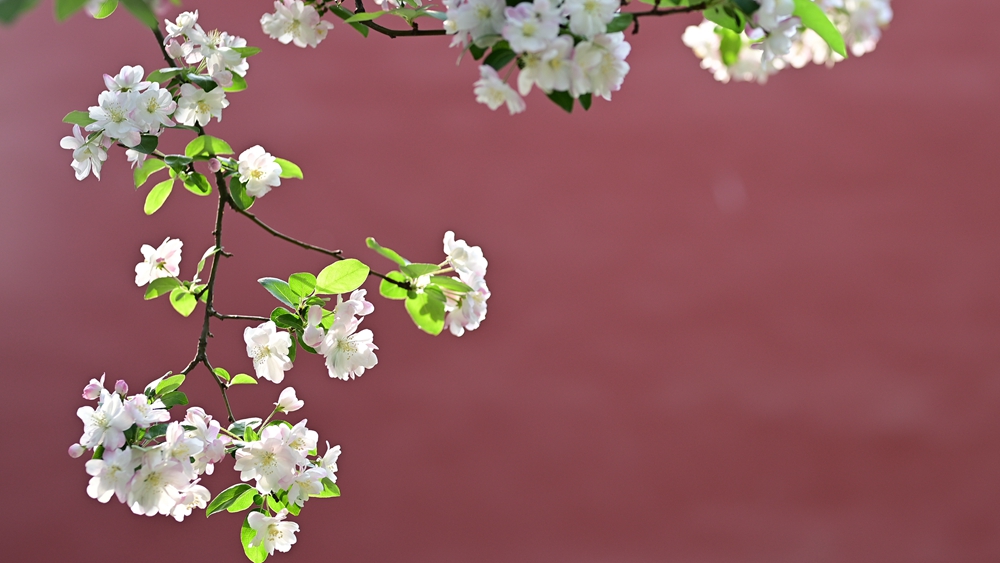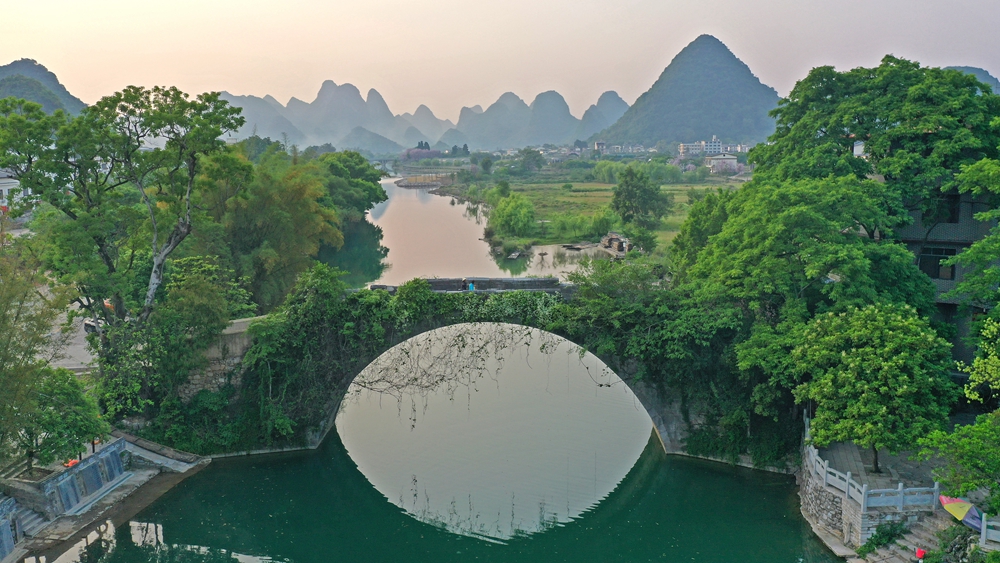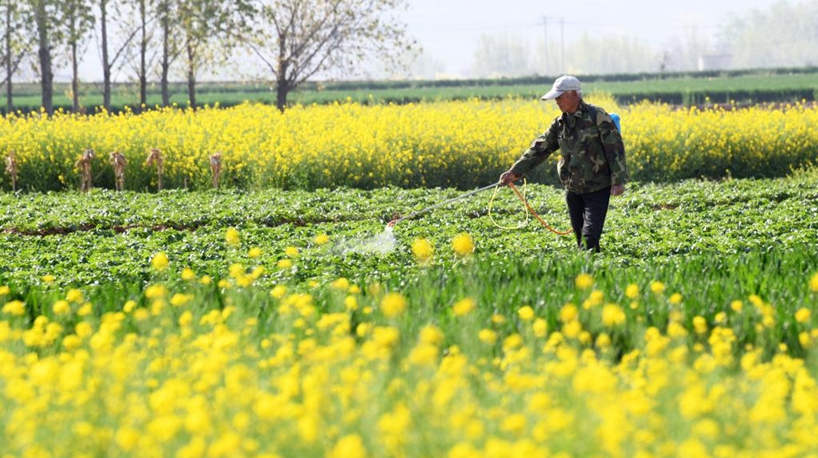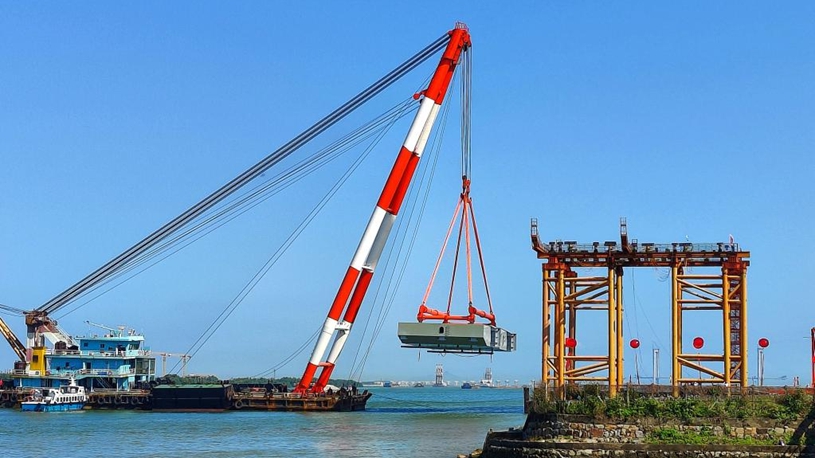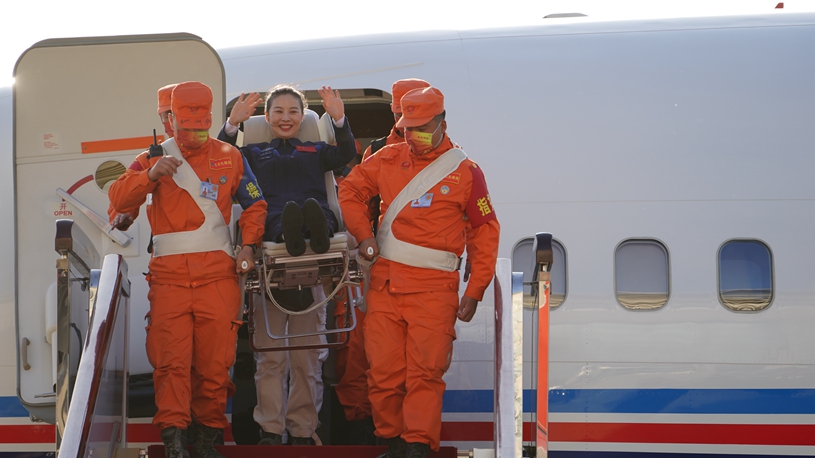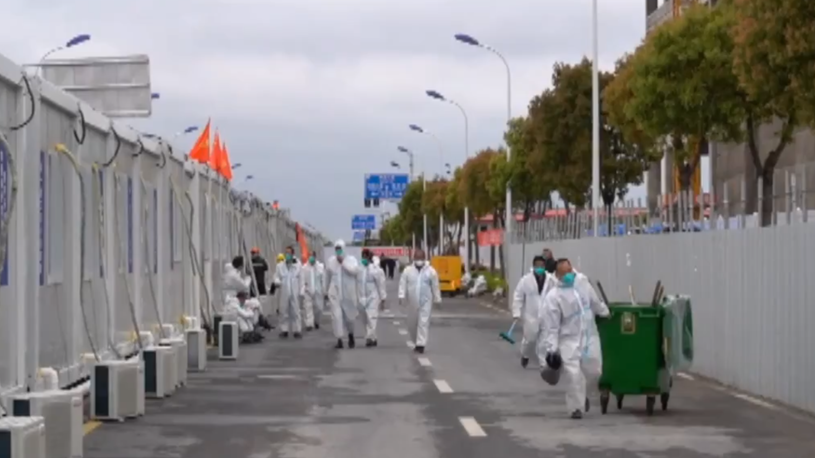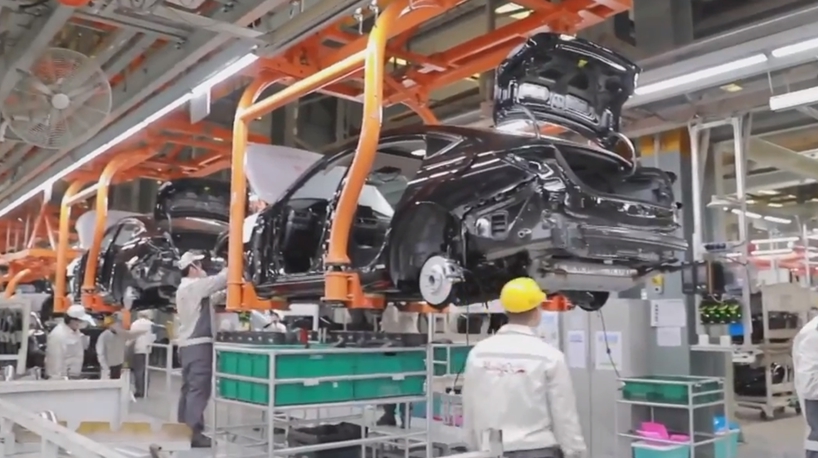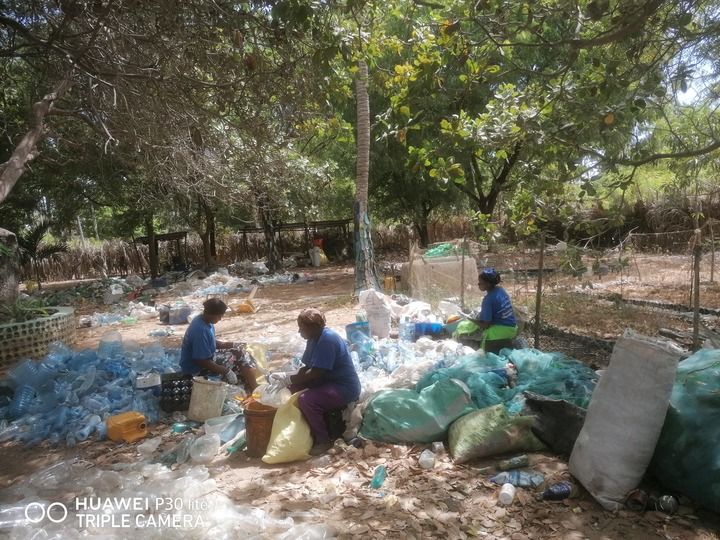
Female members of the Blue Team, a grassroots conservation network in Watamu, Kilifi County sort garbage collected from the beaches at the backyard of EcoWord, a local plastic recycling social enterprise in Kenya, on April 12, 2022. (Photo by Naftali Mwaura/Xinhua)
Kenya's coastal communities in the county of Kilifi find a new lifeline through plastic waste recycling.
NAIROBI, April 16 (Xinhua) -- Alice Kadzo, a middle-aged mother of four, has always relished the ambience and beauty of the Indian Ocean sandy beach that neighbors her native village in the northern Kenyan coastal county of Kilifi.
The plastic waste crisis, however, has changed her life.
Since her childhood, the pristine shoreline that attracts visitors from far afield has been a source of livelihood for local fisherfolk. That golden era according to Kadzo was fading from her memory due to the plastic waste crisis along the Indian Ocean beaches in recent times, to the detriment of communities who depend on them as a source of food and income.
Kadzo is a member of a grassroots conservation network of women and youth who have been collecting plastic debris from the expansive Indian Ocean shoreline for recycling and reuse, hence earning them a steady income.
"Having witnessed the harm plastic waste was causing to marine life besides diminishing the beauty of beaches, we felt our livelihood as a community was at stake, prompting us to act," Kadzo told Xinhua during a recent interview in Watamu, a renowned Marine Protected Area and tourism haven in Kilifi.
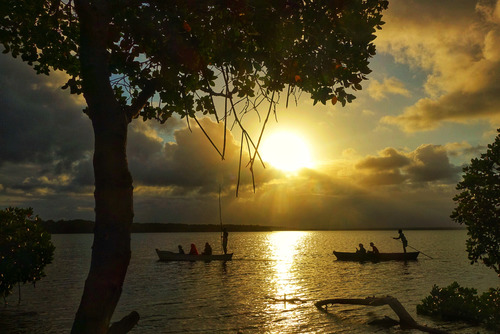
Tourists take boats on the water of Watamu Marine National Park in Malindi on the east coast of Kenya, Aug. 25, 2018. (Xinhua/Li Yan)
What started as a random attempt to clean up Watamu beaches whose splendor was fading amid plastic waste has evolved into a sustainable source of livelihood for Kadzo and her compatriots.
According to her, nearly a decade of collecting, sorting and selling plastic waste at a recycling plant run by a local social enterprise has been earning her a steady income to cater for basic needs like food, shelter and tuition fees for her children.
"We are still committed to this noble mission of eradicating plastic waste from the ocean, protecting fish from dying and earning an extra income when this waste is recycled into useful products," said Kadzo.
Winifred Mutua, a middle-aged mother of three, said that having witnessed idyllic Watamu beaches lose their luster due to plastic litter, she decided to be part of the solution, hence her participation in regular cleanup exercises. Mutua said that she used to eke a living from selling handicrafts along the Watamu shoreline and watching it choke with plastic litter was a sad development that triggered her vow to be part of its reclamation.
Mutua said that female members of the Blue Team, a grassroots marine conservation network in the Watamu area, have in the past decade participated in plastic waste collection, sorting and recycling as a full-time occupation. Geoffrey Balusi, a 30-year-old member of the Blue Team since 2019, said that clearing plastic debris off the shoreline has been beneficial to the environment and health of local communities.
Karen Njue, the operations manager at EcoWorld, a Watamu-based social enterprise established in 2016, said that its pioneering plastic waste recycling project has revitalized the health of the marine ecosystem besides generating new revenue streams for local women and youth.
"Our goal is to reduce plastic pollution in our oceans and the threat it poses to marine life," said Njue, adding that on average EcoWorld collects about ten tonnes of plastic waste from Watamu-based women and youth groups every month.
She said the recycling plant pays daily wages of 500 shillings (about 4.29 U. S dollars) to every woman or youth engaged in collecting and sorting plastic waste. In addition, Njue said that EcoWorld has sustained its business model through selling products made from recycled plastic waste to green enterprises within the coastal region and beyond.
Anderson Kenga, a 20-year-old beach cleaner and a beneficiary of EcoWorld's training, said that he is now able to make key holders, coasters and fridge magnets from recycled plastic material, thus earning additional income.
Eric Okuku, a research scientist at Kenya Marine and Fisheries Research Institute (KEMFRI), noted that plastics comprise 58 percent of marine litter on the beaches, adding that community-led cleanup exercises had provided some respite. According to Okuku, 31 percent of about 37,000 tonnes of plastic waste that enters the Kenyan coastline annually is recyclable and the country had developed a marine litter action plan whose implementation will boost the circular economy.
"Promoting recycling and reuse of plastic litter collected from the ocean will enable the country to move from linear to a circular economy," said Okuku. ■



